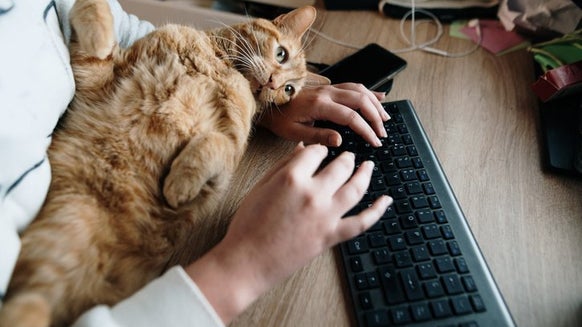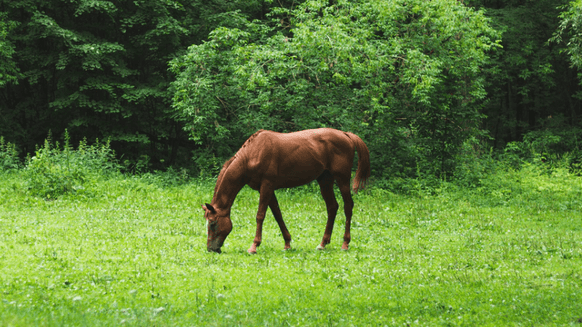Find Responsible Sellers With Our Pet Buying Checklist

Getting a pet's a really exciting time. But it's also quite daunting. When you start looking at pets for sale it's easy to forget questions you'd planned to ask. That’s why we’ve created this handy Pet Buying Checklist to help you find a great, responsible seller, and your new furever friend!

Before You Make Any Decisions
Research: Buying a pet shouldn’t be an impulsive decision. It needs a lot of time, and thought. Look at the species and breeds that would best suit you, your family, and your lifestyle.
Commitment: Think about the long-term cost of the pet you’re considering, as well as life expectancy, and only proceed if you’re confident you can commit to the animal for the duration.
Adopt, Don’t Shop: Look for rescue shelters in your area that specialise in the type of pet you’re considering. The workers in these shelters are a great source of advice and usually offer lifetime support for adopters.
Private Sellers: If you’re thinking of buying privately, depending on the species you’re looking for, opt for those that are registered, licensed, and have great reviews and references available (it’s a buyer’s responsibility to check and confirm a seller’s references).
ID Verified Sellers: If you’re using a site like Preloved, be sure to prioritise sellers that are ID Verified. Sellers on Preloved that have a blue tick next to their username have had their passport of driving license verified by government-grade video software.

The Buying Process
Meeting: Always agree to meet the pet in it’s own home and don’t allow a seller to talk you into meeting them elsewhere ‘for convenience’. You need to be able to confirm a seller’s address as well as being able to see the pet’s current living situation.
Where’s Mum?: Remember, by law sellers of young pup and kittens (under 6 months of age) must let you meet their mum. If a seller refuses to let you see mum, or makes excuses for her absence, it could mean the pups are being sold by an Advertiser and not the Breeder. If advertised on Preloved, please report the seller and their advert immediately – and do not proceed with the purchase.
Are They Old Enough?: If you’re purchasing a younger animal, check it’s old enough to leave. It needs to be fully weaned and able to live independently to mum.
- From 8 Weeks: Pups, Kittens, Rabbits, Guinea Pigs, Hedgehogs, Ferrets and Finches
- From 6 Weeks: Degus, Hamsters, Mice, Rats, Gerbils and Pigeons
- From 11 Weeks: Budgies, Cockatiels
- From 12 Weeks: Chinchillas
- From 16 Weeks: Parrots
- From 17 Weeks: Sugar Gliders
- From 8 Months: Horses, Ponies, and Donkeys
Are They Microchipped?: By law, all dogs, horses and, from June 2024, cats must be microchipped. The seller or breeder should have arranged this before a sale, and then buyers transfer the details in their own name once they’ve taken ownership – You must have the supporting documents before you take your pet home.
Pet Health: Confirm the pet has had all relevant vaccinations, as well as flee and worm treatments where applicable. Make sure to get copies of all vet records and know that you can contact vets to verify these details. A seller should be confident that they’re providing a happy and healthy animal so should be prepared to offer a refund within an agreed period of time if buyers aren’t happy following their own vet checks.
Registered Pets: Make sure to see all documents relating to an animal’s registrations with organisations like Kennel Club and TICA. These details can be verified with the registering body before you take your pet home.

Ask Lots Of Questions
Ask the seller as much as you can about the pet you could be purchasing. A responsible seller will be happy to answer any questions and provide as much support and advice as they can during the rehoming journey.
For young pets: Ask about their parents. Ask about their health and their temperament. Ask about their diet and if they’re eating well. Ask if they’re interacting well with littermates and for details of how they’ve been solialised. For older pets: Ask why the animal is being rehomed, about it’s temperament and character, likes and dislikes, dietary needs, any training, and medical history. More About The Seller: They should be happy to provide certain information about themselves that pertains to any would-be sales. Ask to see ID that confirms name and address. If they are selling as a licensed breeder, ask to see their license. References: Ask if they have rehomed an animal previously, would they be able to provide contact details for them with their consent so that you can speak to them directly. Continued Support: Will the seller provide additional support following the sale. For pups, will they offer a Puppy Contract?

Get Your Own Pet Buying Checklist
If you'd like your own handy pet buying checklist to help you on your buying journey, click here.
If you're not able to tick all of the boxes there might be a genuine reason. Get more information from the seller through regular and clear communications. But if you think something's not quite right, walk away and report! To report a Preloved advert please contact us here.

What To Do If You're Concerned
Contact PAAG (Pet Advertising Advisory Group) at admin@paag.org.uk if you’re concerned about any online pet adverts. Report adverts to Trading Standards via the seller's Local Authority. For Northern Ireland, contact your local council. For serious welfare or cruelty issues, please contact the RSPCA (England & Wales) on 0300 1234 999 or SSPCA (Scotland) on 03000 999 999. If you’ve been the victim of an online pet scam, or any cyber crime, please report it to Action Fraud.









